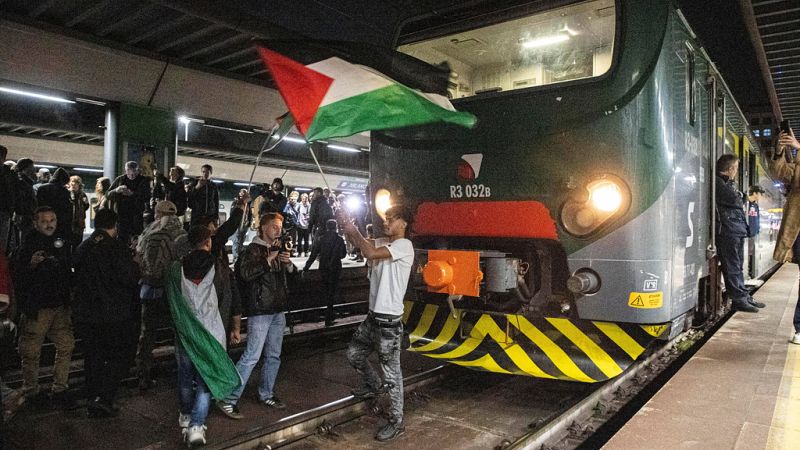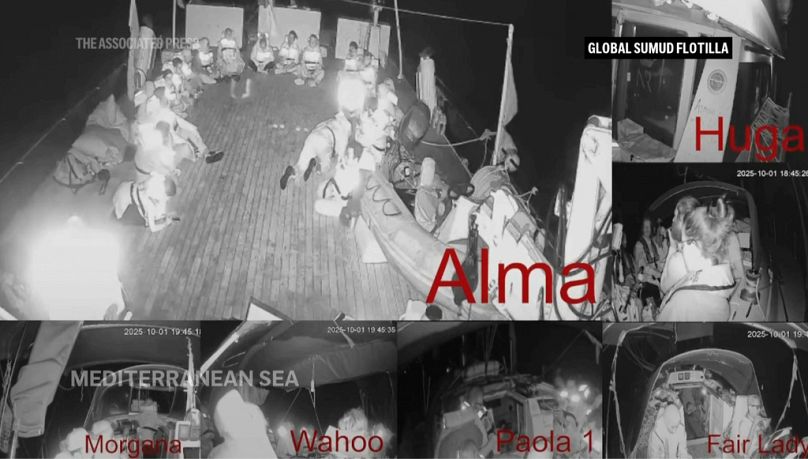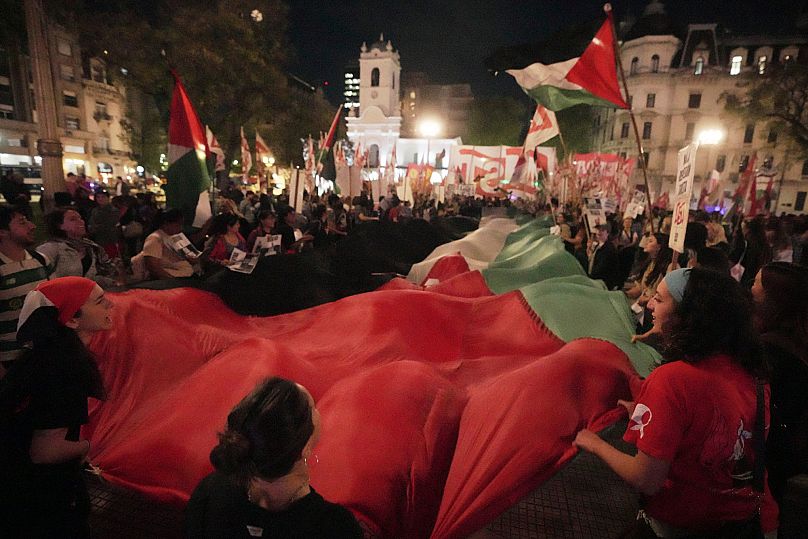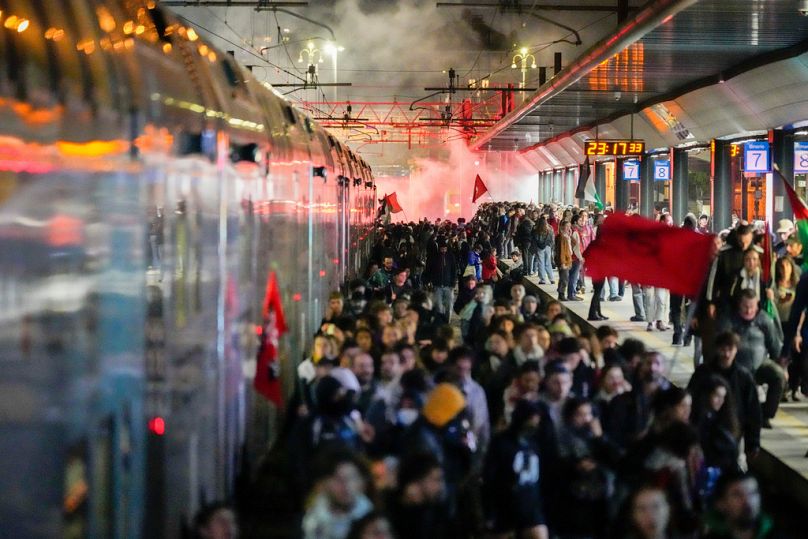Israel intercepts Gaza aid flotilla, sparking widespread protests

Israeli forces have intercepted almost all of the 43 ships carrying humanitarian aid to Gaza, according to the latest information by Israeli authorities midday on Thursday.
"The Hamas-Sumud provocation is over," the Israeli Foreign Ministry said in a statement on X.
Activists on board the intercepted ships, including climate activist Greta Thunberg, were "safe and in good health".
"They are making their way safely to Israel, from where they will be deported to Europe," the ministry added.
"One last vessel of this provocation remains at a distance. If it approaches, its attempt to enter an active combat zone and breach the blockade will also be prevented."
Italy's Foreign Minister Antonio Tajani told Italian public broadcaster RAI that the activists would be deported in the coming days and that Israeli forces were told "not to use violence".
The flotilla consists of nearly 500 activists, including Greta Thunberg, Nelson Mandela's grandson Mandla Mandela, former Barcelona Mayor Ada Colau and several European lawmakers.
Earlier, the group stated it remained undeterred in its aim of breaking the long-standing Israeli blockade of Gaza and bringing aid to Palestinians.
"The illegal Israeli interceptions won't deter us. We continue our mission to break the siege and open a humanitarian corridor," the organisation said in a post on Instagram.
What happened?
The vessels were sailing in international waters north of Egypt and entered what activists referred to as the “danger zone", an area that Israeli authorities warned the flotilla not to cross, and where it had previously stopped other boats.
The activists said the Israeli navy approached the flotilla early on Wednesday, and signalled via a radio message that the crew should change course as it was approaching an "active combat zone", while also reiterating an offer to transfer the aid to Gaza through other channels.
As night fell, the flotilla reported the approach of dozens of naval vessels. Shortly afterwards, the livestream of most ships was disrupted. Some activists managed to live broadcast the moment Israeli forces approached them via their smartphones before throwing their devices into the water.
On its social media channels, the group shared pre-recorded videos of activists aboard several of the intercepted ships, each stating their name and nationality. “If you are watching this video”, many began, declaring that they had been taken by Israel against their will and reiterating the non-violent nature of their mission.
The group began its journey in the port of Spain and was later joined by additional convoys from Italy and Tunisia. Organisers said the flotilla, which marked the largest attempt to break the 18-year-long Israeli maritime blockade of the Gaza Strip, was to reach the shores of the enclave by Thursday morning. They acknowledged the likelihood of interception, noting that Israeli authorities have blocked all previous attempts.
International demonstrations
Israel's interception of the flotilla sparked widespread criticism, with protests erupting in major cities across the globe, including in Italy, Greece, Spain, Belgium, Turkey, Argentina and Colombia.
In Italy, thousands of people gathered in the streets of Rome, Naples, Milan and Turin.
Protesters in the Italian capital chanted "let's block everything" and caused authorities to close several metro stations.
In Naples, demonstrators walked across the rails of the city's main station, chanting "Free Palestine" and waving flags.
In the capital of Argentina Buenos Aires protesters came together to urge their government to take action to release Celeste Fierro, a Buenos Aires city legislator-elect for the Workers' Socialist Movement, who was aboard the Adara ship.
Today




